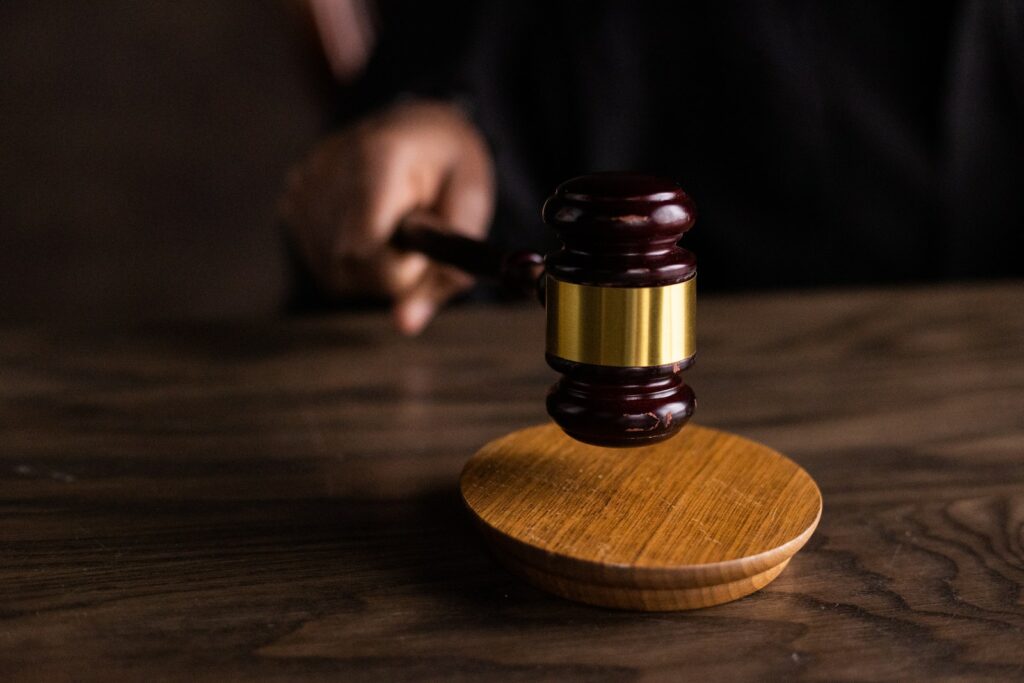
In the modern business world, intellectual property (IP) has become an essential aspect for many companies to protect their ideas, innovations, and creativity. From trademarks and copyrights to patents and trade secrets, each type of IP holds significant value for businesses and their long-term success. Protecting these assets can be a complex and often confusing process, leaving many business owners and entrepreneurs feeling unsure about how to safeguard their valuable IP effectively.
One crucial step in maintaining the integrity and security of your intellectual property is engaging the services of a qualified lawyer. An experienced IP lawyer can help you navigate the legal landscape, identify the various types of IP your business owns, and ensure your rights are fully protected. By working closely with a legal professional, you can mitigate the risks of infringement, costly legal disputes, and other potential challenges that may arise throughout the lifecycle of your intellectual property.
Key Takeaways
- Engaging a lawyer is essential for effectively protecting your intellectual property assets.
- A knowledgeable IP lawyer helps identify and navigate the legal complexities surrounding your business’s IP.
- Assistance from an attorney can reduce risks and aid in managing potential legal disputes involving your intellectual property.
Understanding Intellectual Property
Categories of IP: Patents, Trademarks, and Copyrights
Intellectual Property (IP) is a crucial aspect of any business, protecting its ideas, innovations, and creations. There are three primary categories of IP:
-
Patents – A patent grants an inventor the exclusive rights to their invention for a limited time. Patents protect the design, process, or function of a new and useful product or service.
-
Trademarks – Trademark protection applies to symbols, logos, phrases, or words that distinguish a company’s goods or services from those of others. Registering a trademark helps prevent competitors from using similar branding elements to confuse customers.
-
Copyrights – Copyright protection applies to original works of authorship, including literary, dramatic, musical, and artistic creations. Copyrights protect the tangible representation of the creator’s ideas, such as manuscripts, sound recordings, and photographs. Protection lasts for the creator’s lifetime, plus 70 years.
Difference Between Tangible and Intangible Assets
IP is considered an intangible asset, as it cannot be physically touched or seen. Examples of intangible assets include patents, copyrights, trademarks, and company goodwill. These assets are crucial for businesses because they protect a company’s competitive advantage and can generate financial benefits.
On the other hand, tangible assets are physical items owned by a company, such as machinery, buildings, and inventory. While these assets provide value to the business, they are also susceptible to depreciation and physical damage. Understanding the difference between tangible and intangible assets is critical, as intangible assets like IP can often be the backbone of a business, ensuring its long-term viability.
Importance of Protecting Intellectual Property
Ownership Rights and Innovation
Protecting intellectual property (IP) is crucial for businesses and creators to maintain ownership rights over their work. By securing IP rights, creators can control the use of their ideas, products, and brand. Legal protection, such as patents, copyrights, and trademarks, provide exclusive rights for a specific period, allowing the IP owner to benefit financially from their innovation. This promotes a competitive market and encourages creators to invest in research and development.
Additionally, securing IP rights safeguards against potential IP theft or unauthorized use. This is particularly important for businesses operating internationally or partnerships that may dissolve in the future. By protecting your IP, you ensure your ownership remains legitimately recognized and can prevent other entities from unfairly profiting from your work.
Branding and Business Growth
IP protection is essential for building a strong brand and facilitating business growth. Your brand name, logo, and any distinctive elements of your products or services contribute to your company’s identity, differentiating it from competitors in the market. Protecting your brand through trademarks and copyrights establishes recognition and trust from consumers, leading to increased customer base and revenue.
Furthermore, strong IP protection can open opportunities for expansion and increase the overall value of your business. Investors and potential partners are more likely to collaborate with a company that diligently protects its IP, as it signifies a responsible management approach and decreases the likelihood of legal disputes. This is crucial for small businesses and startups, as having a well-protected IP portfolio can be a deciding factor when seeking investment or partnerships for growth.
Identifying Intellectual Property in Your Business
As a business owner, it’s crucial to identify and protect various types of intellectual property (IP) assets to maintain a competitive advantage. This section will cover four significant IP categories: Inventions and Discoveries, Artistic Works and Designs, Symbols and Logos, and Names and Internet Presence.
Inventions and Discoveries
Inventions and discoveries often represent valuable intangible assets for businesses. These may include innovations in products, processes, and technologies. Key IP protection instruments for inventions and discoveries are patents and trade secrets. Patents protect your inventions for a limited time, while trade secrets protect undisclosed information for an unlimited duration, provided confidentiality is maintained.
Artistic Works and Designs
Creative works like images, artwork, and designs fall under the category of artistic intellectual property. These assets are protected by copyrights, which grant exclusive rights to reproduce, distribute, and display the works. Additionally, industrial designs can be safeguarded under design patents, ensuring that the ornamental aspects of a product are protected from imitation.
Symbols and Logos
Symbols and logos are essential components of your business branding and are protected as intellectual property under trademark law. A trademark is a distinctive sign that differentiates your products or services from those of competitors. Registering a trademark grants you legal rights to prevent others from using similar marks that may cause confusion among customers.
Names and Internet Presence
The names of your business, products, or services are also intellectual property assets. Protecting these assets involves registering trademarks and securing relevant domain names to establish a unique internet presence. Domain names are valuable for your business’s online identity, and acquiring relevant domain names can prevent cybersquatting and strengthen your brand.
By identifying and protecting these intellectual property categories, businesses can safeguard their valuable intangible assets, stay competitive, and maintain a strong brand presence.
Working with an Intellectual Property Lawyer
Benefits of Hiring an IP Attorney
Hiring an intellectual property lawyer can offer several advantages for businesses and individuals:
- Expertise: IP attorneys have extensive knowledge of intellectual property laws and can provide guidance on how to protect your creations effectively.
- Efficiency: A trademark or patent lawyer can help streamline the registration process, saving you time and effort.
- Prevention: An IP attorney can help identify potential IP issues and act proactively to mitigate risks, reducing the likelihood of infringement disputes.
Role of an IP Lawyer in Protection and Enforcement
Protection: IP lawyers play a crucial role in safeguarding a client’s intellectual property rights. They can:
- Assist in registering trademarks, patents, and copyrights to secure legal protection for your creations.
- Draft and review licensing agreements to ensure they align with your IP goals and safeguard your interests.
- Provide counsel on trade secret protection strategies to maintain the competitive advantage of your business.
Enforcement: If an infringement occurs, an IP attorney can take action to:
- Investigate the infringement and build a case for possible legal action.
- Negotiate settlements or other resolution options to avoid lengthy lawsuits.
- Represent you in court proceedings if legal action becomes necessary, advocating for your IP rights.
Working with an intellectual property lawyer can be essential when it comes to protecting and enforcing your IP rights. Their specialized knowledge and expertise make them invaluable assets when navigating the complexities of intellectual property law.
Intellectual Property Registration Process
Patent Registration Process
The patent registration process starts with preparing a patent application, comprising a written description of the invention and its purpose. The document should include drawings where appropriate and claims that define the scope of the invention. Afterward, submit the application to the U.S. Patent and Trademark Office (USPTO) and pay the relevant fees.
During the examination, a patent examiner reviews the application to assess its compliance with patent laws and regulations. In some instances, the examiner might request additional information or modifications. It’s crucial to respond promptly and adequately to avoid delays or rejection. The process can take several years but, once granted, a patent provides protection for 20 years from the filing date.
Trademark Registration Process
Trademark registration starts by conducting a search to ensure that the desired mark is unique and distinguishable from existing registered trademarks. Next, prepare and submit an application to the USPTO, including information about the mark, its use in commerce, and the goods or services associated with it. Also, pay the required filing fees.
The USPTO assigns an examining attorney to review the application and ensure its compliance with trademark laws and regulations. This process typically takes several months. The attorney might issue office actions requesting additional information, clarification, or amendments, which must be addressed timely and accurately. Once approved, the mark is published in the Official Gazette, and other parties have 30 days to object. If there are no objections, the trademark will be registered and protected as a registered trademark.
Copyright Registration
To register a copyright, create an account with the U.S. Copyright Office and submit an application, providing detailed information on the work, its creation, and the copyright claimant. Include a deposit copy of the work and pay the associated fees.
The Copyright Office reviews the application, and if it meets registration requirements, they will issue a certificate of registration. The copyright registration process takes several months; however, protection as a copyright begins from the moment of the work’s creation, and registration is not mandatory. Registering a copyright facilitates enforcement of rights in case of infringement and is especially useful when seeking statutory damages and attorney’s fees.
Handling IP Infringement and Legal Disputes
Identifying Infringement Issues
Protecting your intellectual property rights is crucial to ensuring the success and growth of your business. One of the first steps in safeguarding your IP is being able to identify potential infringement issues. Infringement occurs when unauthorized third parties use, copy, or reproduce your copyrighted, patented, or trademarked material. Keep a close eye on the market and stay up to date with industry developments, as this will help you identify potential infringers more efficiently.
Litigation and Lawsuits
In cases where infringement has occurred, legal disputes might arise. Hiring a lawyer with expertise in IP law is critical for navigating these situations. They will assess the infringement’s extent, evaluate potential damage, and advise you on the best course of action. This may include initiating a lawsuit against the infringer(s) and seeking remedies such as injunctions, monetary damages, or both (source).
Litigation can be a lengthy and expensive process. However, it is essential to take legal action when necessary to protect your IP from further violation and establish a strong deterrent against any future infringements.
Negotiating Licensing Deals and Agreements
Not all IP disputes have to result in lawsuits and legal battles. In some instances, a more mutually beneficial solution can be reached through negotiating licensing deals and agreements. Your lawyer can assist you in drafting and reviewing licensing agreements, ensuring that your intellectual property rights are adequately protected and that the agreement is in your best interest.
A well-negotiated licensing agreement can serve as a way to monetize your IP, granting other parties the rights to use your copyrighted, patented, or trademarked material in exchange for royalties or other forms of compensation. This approach can open up new revenue streams for your business while maintaining control over your IP (source).
By understanding the importance of IP protection, accurately identifying infringement issues, and hiring an experienced lawyer to guide you through litigation or contract negotiations, you can be confident that your intellectual property rights are properly safeguarded.
Managing Intellectual Property in Collaborative Settings
Collaborative projects are essential to the growth and innovation of an organization, but they also introduce potential risks to your intellectual property (IP). Protecting valuable IP assets in a collaborative environment requires a solid understanding of legal and contractual tools at your disposal. This section will cover the use of Non-Disclosure Agreements (NDAs) and Contracts and Licensing Arrangements to help safeguard your IP interests.
Non-Disclosure Agreements for Employees and Partners
Non-Disclosure Agreements (NDAs) are essential for protecting trade secrets and other sensitive information within a collaborative environment. These legally binding agreements outline the scope of confidential information that employees and partners are not allowed to disclose to third parties.
- Employees: An NDA should be part of every employee’s onboarding process, ensuring that they understand their responsibilities in keeping vital IP assets confidential. This can help prevent the unintentional leakage of trade secrets, proprietary data, and other confidential information to competitors or the public.
- Partners: As your organization collaborates with other partners in joint ventures or research initiatives, it is essential to have an NDA in place to protect your IP. Partners’ NDA ensures that all parties involved in a project are aware of their obligations regarding confidentiality and IP protection.
Contracts and Licensing Arrangements
Contracts and licensing arrangements are two legal tools to help you manage and safeguard IP rights in collaborative settings, defining the scope of ownership, usage, and financial arrangements concerning your IP assets.
-
Contracts: Having clear and comprehensive contracts in place can help avoid disputes or misunderstandings between collaborators. Contracts should outline each party’s roles, responsibilities, and ownership rights concerning IP created or shared during the collaboration. These contracts can cover patents, designs, circuit layouts, data and formula, business names, and internet domain names.
-
Licensing Arrangements: Licensing your IP allows you to grant legal rights to other parties to use your IP, typically in exchange for monetary compensation or under specific terms and conditions. Licensing can involve patents, copyrights, trademarks, service marks, and trade secrets, which enables you to maintain control over your IP while benefiting from the expertise and resources of your collaborators.
In conclusion, effectively managing intellectual property in collaborative settings requires careful planning and the use of legal tools such as NDAs, contracts, and licensing arrangements. By addressing potential risks early and setting clear guidelines for IP protection within your organization and with external partners, you can successfully foster innovation while safeguarding your valuable IP assets.
Avoiding Common IP Mistakes and Ensuring Due Diligence
Undervaluing Intellectual Property
Intellectual property (IP) is a significant asset for any business and often plays a key role in its growth and development. However, many companies may undervalue their IP, not realizing its full potential. This can lead to legal issues and missed opportunities. It is essential for businesses to work with experienced patent attorneys who are knowledgeable in patent law to help them identify and protect their inventions, designs, and original ideas.
Some ways to avoid undervaluing your IP include:
- Conducting proper due diligence to ensure you are aware of your IP assets and understand their value in the market
- Regularly updating your IP portfolio to include new inventions, discoveries, and improvements
- Consult with an IP lawyer to understand the legal implications of your innovations and the best way to safeguard them
Failing to Protect Ownership
Failing to protect your IP ownership can result in disputes and potential losses for your business. In order to avoid such issues, it is important for inventors and companies to enlist the help of a patent attorney to assist in the process of legally safeguarding their creations.
Doing so ensures that the rightful owner has exclusive rights to use, manufacture, and distribute their invention, design, or idea, while others are prohibited from doing so. This includes filing patent applications, registering trademarks, and securing industrial designs. Additionally, working with a lawyer helps ensure that your privacy is protected throughout the legal process.
Privacy Concerns
Protecting the privacy of your IP is an essential aspect of safeguarding your business’s success. This includes not sharing sensitive information with third parties without proper legal agreements in place and ensuring that your prototypes and confidential information are secured. Consult with a patent attorney to develop privacy policies and non-disclosure agreements that will help protect your IP assets.
By taking these precautionary measures and working with a skilled IP lawyer, businesses in Philadelphia, PA, and beyond can more effectively avoid common IP mistakes and ensure a higher level of due diligence when it comes to their intellectual property.
Frequently Asked Questions
Why hire a lawyer for IP?
Hiring a qualified lawyer to handle your intellectual property matters is crucial because they have the expert knowledge to navigate complex laws, registration processes, and legal disputes. A lawyer can also help you maximize the value of your IP assets and advise you on how to prevent infringement by others. Moreover, they can represent you in case of IP disputes, ensuring your rights are adequately protected.
What are legal ways to protect IP?
There are several legal ways to protect your intellectual property, including patents, trademarks, copyrights, and trade secrets. Each of these methods serves a different purpose and protects a specific type of IP:
- Patents protect inventions, such as new processes, machines, or products
- Trademarks safeguard brand names, logos, and slogans
- Copyrights defend original works of authorship, like books, music, or films
- Trade secrets encompass confidential information, such as manufacturing processes or client lists
In addition to these methods, consider using non-disclosure agreements when sharing sensitive information with employees or business partners.
How does IP law help inventors?
IP law provides inventors with exclusive rights to their inventions, allowing them to profit from their creativity and hard work. By offering legal protection, IP law encourages innovation by giving inventors the reassurance that their ideas cannot be stolen or copied without consequences. Furthermore, patents grant inventors a temporary monopoly, which can be advantageous in a competitive market.
How to safeguard IP in business?
To safeguard your intellectual property in business, it is essential to:
- Identify and categorize all your IP assets
- Register your IP with the appropriate government agencies (patents, trademarks, copyrights)
- Use non-disclosure agreements when sharing confidential information
- Implement policies and training for employees to raise awareness about IP protection
- Regularly monitor the market to detect potential IP infringements
How is IP protected by law?
Intellectual property is protected by law through a combination of federal statutes and case law, as well as international agreements. These laws grant IP owners exclusive rights to use, reproduce, or distribute their creations, preventing others from exploiting them without permission. Legal protection can include cease and desist orders, injunctions, and monetary damages awarded to the IP owner in case of infringement.
What to do against IP violation?
If you suspect your intellectual property has been infringed, the first step is to consult a qualified IP lawyer who can assess your situation and guide you on the appropriate course of action. Possible actions may include sending a cease and desist letter, pursuing legal negotiations, or filing a lawsuit against the infringing party. Your lawyer can also help you gather evidence to support your claim and represent you in court if necessary.



